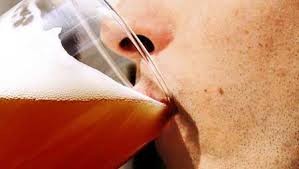Impacting addiction knowledge in drug users minds

Impacting addiction knowledge in drug users minds can be very essential in controlling chronic illnesses associated with drugs and alcohol
Impacting addiction knowledge in drug users minds: Alcohol and drug addicts
The rate at which the prevalence of drug use is escalating is worrying that we can no longer keep quiet about it. The most valuable gift we can ever have is that of good health. If this virtue is under threat because of substance abuse, the all of us must pool together in finding lasting solutions. Impacting addiction knowledge in all drug users is very essential in dealing with the problem from the roots. That is why doctor Dalal Akoury MD and founder of AWAREmed Health and Wellness Resource Center is advocating to all people to seek foe more empowerment in addiction literacy by seeking for social skills training for the substance abusers to make a difference in their lives.
We appreciate that addiction being what it is, taking that bold decision may not be very easy for many people since addiction is something many would not want to associate with. But the most important thing is that we lend a helping hand to drug addicts and all alcoholics. Doctor Dalal Akoury MD and founder of AWAREmed Health and Wellness Resource Center are acknowledging that one common trait of many drug addicts and alcoholics are problems interacting with others in social situations. This is known as a lack of social skills. Sometimes this difficulty is what leads an individual into addiction in the first place. And some people have been addicted to substances for such a long time that it has affected their social development. Therefore if anyone is lucking social skills, then that calls for social skills training.
When opting for social skills training for an alcoholic or drug addict then these are some of the things that you must be ready to take the following into consideration: you must be ready to learn how to interact with friends, family members and even colleagues at work. You must also know how to interact in social situations especially when drugs and alcohol will be served or present and finally you must take a firm stand in declining any offer to use drug and alcohol in other words, you must be well armed with the refusal skills. That is to say when you say NO then it must remain that way irrespective of the prevailing circumstances. Doctor Akoury says that social skills training are closely associated with behavior therapy. Behavior therapy attempts to remove unwanted behaviors and replace them with desirable behaviors. It must be noted that for desired result, social skills training may not be very effective on its own but when combined with other cognitive behavioral therapy treatments, then its effectiveness can be realized. From the professional findings, it has been established that social skills training can significantly decrease the relapse rate for alcoholics and drug addicts.
Impacting addiction knowledge in drug users minds: Interpersonal relationships and substance abuse
Social skills training can teach drug and alcohol addicts how to relate with coworkers, friends, and family in a variety of social settings. Clients will learn such skills as: Listening as well as talking; that is, two-way communication, empathy, understanding unspoken clues such as body language and assertiveness, and how not to be taken advantage of. These are very essential and are only possible with the impaction addiction knowledge in drug users minds effectively.
Impacting addiction knowledge in drug users minds: alcohol and drug addicts
http://www.integrativeaddictionconference.com/wp-admin



